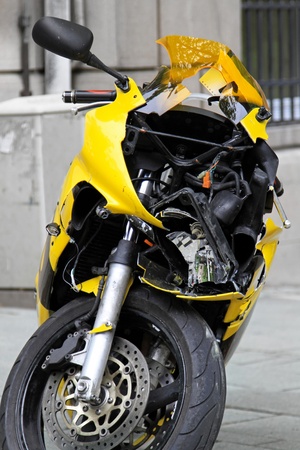Has Your Motorcycle Been Recalled
September 9, 2015 | Category: Defective Products | Share"Riding motorcycles may be part of your life or just for recreation, in either event, it is important to know whether the bike you are riding is safe," said Motorcycle Accident Attorney, Randall Spivey of Spivey Law Firm, Personal Injury Attorneys, P.A.
Over the last 10 years, motorcycle injuries in Florida have increased by 50 percent and fatalities have increased by close to 90 percent, according to NHTSA (National Highway Traffic Safety Administration). The causes of these accidents are often attributed to driver or motorcyclist error when, in fact, they were caused by defective motorcycle parts.
 Although the media covers SUV, car and truck recalls, they infrequently mention motorcycle recalls. Since there is limited protection for motorcyclists, defective parts often represent disastrous results for unsuspecting riders.
Although the media covers SUV, car and truck recalls, they infrequently mention motorcycle recalls. Since there is limited protection for motorcyclists, defective parts often represent disastrous results for unsuspecting riders.
From January 2015 through July 2015, over 91 thousand Honda and Harley-Davidson motorcycles have been recalled under the NHTSA recall requirements.
The Honda recall on July 8 affected 45,153 motorcycles. The recall stated that the sealant may have been incorrectly applied to the starter relay switch. As a result, the electrical system may lose power. Engines may stall as a result of the loss of electrical power which increases the risk of crashes.
Harley-Davidson issued a large recall on many of its models on April 28. This recall affected 45,901 motorcycles. The recall stated that there was a problem with the clutch which could prevent it from fully disengaging. Specifically, the clutch master cylinder may lose the ability to generate enough lift to disengage the clutch. This can happen most often if the motorcycle has been parked for an extended period of time. Should the clutch not fully disengage, the bike could be involved in a crash if it were to move unexpectedly.
The most common defects affecting motorcyclists are:
- Tire failures
- Brake failures
- Chain failures
- Throttle failures
- Derailleur gear failures (variable ratio transmission system)
- Pedal defects
- Toe clip defects
- Shock absorber failure
- Improper assembly
- Helmet defects
Under the NHTSA regulations, manufactures of motorcycles have the duty to issue recalls when defective motorcycle parts or defective helmets are discovered. These recalls may be voluntary or ordered by NHTSA. They must include a public report which describes the following:
- The safety-related defect or noncompliance with a federal motor vehicle safety standard
- The involved vehicle/equipment population
- The major events that resulted in the recall determination
- A description of the remedy
- A schedule for the recall
In addition, manufacturers must notify motorcycle owners by mail of recalls under the NHTSA regulations.
Motorcyclists are protected by law. Here are some of the circumstances under which they are protected:
Manufacturing defect(s) - An error in assembly or the manufacturing process of a product which caused the product to become unsafe for the consumer.
Design defect - An error in the original design of a product that causes the product to be dangerous and creates a hazard for users.
Failure to warn - This is a defect in terms of the way a manufacturer instructs consumers to use their product or products. If the correct use of the product may injure consumers and the manufacturer fails to mention this, it is negligence on the manufacturer's part.
Once a recall is made, retailers selling motorcycles and motorcycle parts covered under the recall are required to stop selling and/or installing these defective parts.
How to find out if your motorcycle is on the recall list or file a complaint?
Safercar.gov provides a website where you may find out if there is a recall on your motorcycle, motorcycle part(s) or helmet. Also, if you suspect there is a problem, you may file a complaint at Safetcar.gov Complaint Filing.
"If you or a loved one has been injured in a motorcycle accident, it is important to contact our experienced motorcycle accident attorneys as there are many issues involved in motorcycle accident cases," reminds Attorney Spivey.
Personal Injury Attorney, Randall L. Spivey is a Board Certified Civil Trial Attorney – the highest recognition for competence bestowed by the Florida Bar and a distinction earned by just one (1%) percent of Florida attorneys. He has handled over 2,000 personal injury and wrongful death cases throughout Florida. For a free and confidential consultation to discuss your legal rights, contact the Spivey Law Firm, Personal Injury Attorneys, P.A., in Lee County at 239. 337.7483 or toll free at 1.888.477.4839, or by email to Randall@SpiveyLaw.com. Visit SpiveyLaw.com for more information. You can contact Spivey Law Firm, Personal Injury Attorneys, P.A. in Charlotte County at 941.764.7748 and in Collier County 239.793.7748.

